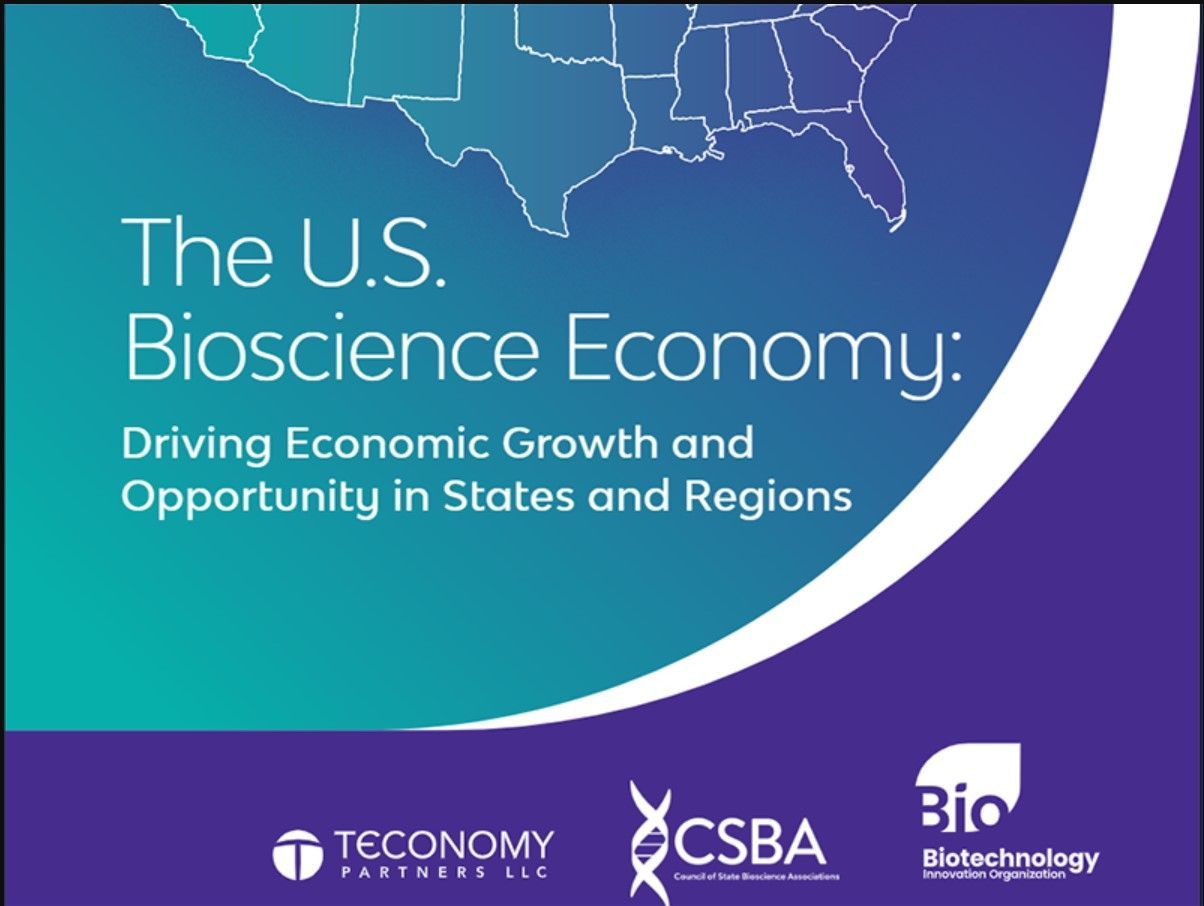New Report Finds Bioscience Sector Generates Over $3 Trillion for U.S. Economy
New Report Finds Bioscience Sector Generates Over $3 Trillion for U.S. Economy

Today, the Biotechnology Innovation Organization (BIO) and the Council of State Bioscience Associations (CSBA) released new national and state-level data on the U.S. bioscience industry's economic performance, its impacts, and its geographic footprint.
The report, "The U.S. Bioscience Economy: Driving Economic Growth and Opportunity in States and Regions," analyzes the sector's economic impact via employment, overall output, wages/benefits, and tax revenue.
Key takeaways from the report include:
- The industry's economic impact, as measured by overall output, totaled more than $3.2 trillion in 2023.
- In 2023, the nation's bioscience industry employed nearly 2.3 million Americans across almost 150,000 U.S. business establishments and in every U.S. state. The sector indirectly supports nearly 8 million additional jobs.
- The industry's employment has increased significantly, by nearly 15 percent since 2019, maintaining its long-term growth trend and well outpacing the nation's overall private sector job growth during this period.
- Between 2019 and 2023, 49 states, DC, and Puerto Rico experienced net job growth in the bioscience industry.
"America’s bioscience sector is vital to addressing the world's most pressing challenges -- from pandemics and national security to preventative health and environmental sustainability. Industry leaders and researchers overcome tremendous obstacles every day to advance innovative solutions and help people lead healthier lives, and this report shows how the sector continues to enrich communities, create jobs, and grow economies across our great country," said John F. Crowley, BIO’s President & CEO.
“For two decades now, this report series has shown the growth and impact of the bioscience industry on the economy. In the wake of the COVID-19 pandemic and economic downturns, it is clear that the biosciences remain a key sector of the growing innovation economy,” said Pete Pellerito, BIO Senior Policy Adviser for Federal and State Economic Development and Technology Transfer Initiatives.
"The bioscience industry's economic footprint extends to every U.S. state and region," said Ryan Helwig, Principal and Project Director with TEConomy Partners. "That means all parts of the country play a part in the industry's breakthroughs and advancements and benefit from its economic impact."
The state-by-state industry assessment is the eleventh in a biennial series, developed in partnership by TEConomy Partners and BIO, and studies the state of the U.S. bioscience industry and its associated innovation ecosystem at the national, state, and metropolitan area levels. The report includes individual fact sheets for all 50 states, the District of Columbia, and Puerto Rico, which can be found alongside the full report and map at www.bio.org/jobs.





